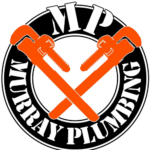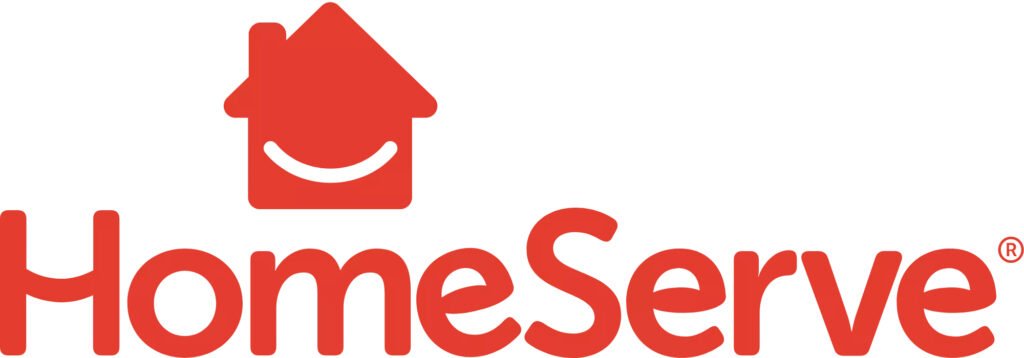Dealing with a clogged shower drain can be a frustrating experience, especially when hair accumulation leads to significant blockages. Hair clogs are one of the most common issues faced by homeowners, particularly in bathrooms where hair is frequently washed down the drain. Fortunately, there are effective methods to remove hair from your drain and prevent such clogs from occurring in the future. This article will explore various strategies, tools, and natural remedies to keep your shower drain clear and functioning effectively.
What Are the Best Ways to Remove Hair from Your Drain?
How to Use a Drain Snake to Remove Hair Clogs?
One of the most efficient ways to remove hair from your drain is by using a drain snake. A drain snake is a flexible tool designed to reach deep into pipes and dislodge clogs. To begin, remove the drain cover to access the clogged area. Insert the drain snake into the drain and gently push it down until you encounter resistance from the hair clog. Once you feel the blockage, twist the snake to entangle the hair and pull it back out of the drain. This method is particularly effective for shower drains, as it can navigate past bends in the plumbing. Regular use of a drain snake can significantly reduce the incidence of hair clogs in your shower.
Can Baking Soda and Vinegar Help Dissolve Hair Clogs?
Another effective technique for clearing hair clogs is the combination of baking soda and vinegar. This natural remedy works by creating a chemical reaction that can help dissolve hair and soap scum buildup in your drain. Start by pouring a cup of baking soda down the drain, followed by a cup of vinegar. Allow the mixture to fizz and sit for approximately 30 minutes, then flush the drain with hot water. This process not only helps to remove hair from the drain but also serves to maintain the cleanliness of your pipes, reducing the likelihood of future clogs.
What Tools Do You Need to Get Hair Out of a Drain?
To effectively remove hair from your drain, it is helpful to have a few essential tools on hand. A drain snake is invaluable for tackling deeper clogs, while a wire hanger can also be repurposed to fish out hair from the drain. Additionally, a plunger can be useful for addressing more stubborn blockages. You may also want to keep a pair of gloves nearby to protect your hands while dealing with the unpleasant task of removing hair. These tools, combined with natural remedies like baking soda and vinegar, provide a comprehensive approach to drain cleaning.
How Can You Prevent Hair from Clogging Your Shower Drain?
What is a Hair Catcher and How Does it Work?
A hair catcher is a simple yet effective device designed to trap hair before it goes down the drain. Typically placed over the drain opening, a hair catcher allows water to flow freely while catching hair and preventing it from clogging your pipes. This preventative measure is especially important in households with long hair, as it can significantly reduce the frequency of hair clogs in your shower drain. Regularly cleaning the hair catcher will ensure it remains effective and can prolong the lifespan of your plumbing.
How Effective Are Drain Covers in Preventing Hair Clogs?
Drain covers serve a similar purpose to hair catchers, but they may come in various designs and materials. While some drain covers are specifically designed to trap hair, others are more generic and may not be as effective. When selecting a drain cover, look for one that has small holes to allow water to flow through while still blocking large clumps of hair from entering your plumbing system. Using a quality drain cover can significantly help prevent hair from clogging drains and reduce the need for frequent drain cleaning.
What Regular Maintenance Can Prevent Hair from Clogging Drains?
Regular maintenance is crucial in preventing hair from clogging drains. One of the simplest ways to maintain your shower drain is to routinely remove the drain cover and clean out any hair accumulation. Additionally, consider using a mix of baking soda and vinegar as a monthly drain cleaner to help dissolve any potential clogs before they become problematic. Brushing your hair before showering can also reduce the amount of loose hair that ends up in your drain. By implementing these regular maintenance practices, you can keep your drains clear and functioning optimally.
What Should You Do If You Have a Clogged Shower Drain?
When is it Time to Call a Professional Plumber?
If your shower drain remains clogged despite your best efforts to remove hair and other debris, it may be time to call a professional plumber. A plumber can assess the situation and determine if there is a more serious underlying issue, such as a blockage further down the line or damaged pipes. Additionally, if you are uncomfortable dealing with the clog yourself or if you have already attempted several methods without success, a professional plumber can provide the expertise needed to resolve the issue quickly and effectively. See more details here
How to Use a Plunger for a Hair-Clogged Drain?
Using a plunger can be an effective method for tackling hair-clogged drains, particularly if the blockage is near the surface. To use a plunger, first ensure that there is some water in the shower basin to create a seal. Place the plunger over the drain and push down firmly, then pull back quickly to create suction. Repeat this action several times, which may help to dislodge the hair clog. If the water begins to drain, continue plunging until the blockage is fully cleared. This method is a straightforward solution for minor hair clogs.
Are Commercial Drain Cleaners Effective for Hair Clogs?
While commercial drain cleaners can be effective for some clogs, they often contain harsh chemicals that may not be suitable for all plumbing systems. These chemical drain cleaners can dissolve hair and other debris but may also cause damage to pipes over time, particularly if used frequently. It is advisable to consider natural remedies such as baking soda and vinegar as a safer alternative for regular maintenance and minor clogs. If you do choose to use a commercial drain cleaner, follow the manufacturer’s instructions carefully, and be mindful of any potential risks to your plumbing.
How Can You Effectively Clean a Hair-Clogged Drain?
What Steps Should You Follow to Remove Hair from the Drain?
To effectively clean a hair-clogged drain, start by removing the drain cover. Use a wire hanger, or a similar tool, to fish out any visible hair from the drain. If the clog persists, consider using a drain snake or a plunger to further dislodge the blockage. After removing hair and debris, pour a cup of baking soda followed by a cup of vinegar down the drain to help dissolve any remaining buildup. Finally, flush the drain with hot water to wash away any residual material. Following these steps can help ensure your drain is free from hair and functioning properly.
How to Use a Wire Hanger for Cleaning Hair from the Drain?
A wire hanger can be an excellent makeshift tool for cleaning hair from the drain. To use a wire hanger, first straighten it out, leaving a small hook at one end. Insert the hooked end into the drain and gently maneuver it to catch any hair clogs. Once you have snagged the hair, slowly pull it out of the drain. This method is particularly effective for surface-level clogs and can be used in conjunction with other techniques for more thorough drain cleaning.
Can Soap Scum Contribute to Hair Clogs in the Shower?
Yes, soap scum can significantly contribute to hair clogs in the shower. When soap residue builds up in the pipes, it can trap hair and other debris, leading to a blockage. Regularly cleaning your shower with vinegar or other natural cleaning agents can help minimize soap scum accumulation. By addressing soap scum alongside hair removal strategies, you can maintain a clearer and more efficient drain, preventing hair from clogging your plumbing system.
What Natural Remedies Can Help with Hair Clogs in Drains?
How to Use Baking Soda and Vinegar for Drain Cleaning?
As previously mentioned, baking soda and vinegar is a powerful natural remedy for drain cleaning. To utilize this method, pour a cup of baking soda down the drain, followed by a cup of vinegar. The fizzing reaction will help dissolve hair clogs and remove buildup. Allow the mixture to sit for at least 30 minutes, then flush the drain with hot water. This natural solution not only helps eliminate hair clogs but also keeps your drain fresh and clear.
Are There Other Natural Solutions to Dissolve Hair Clogs?
In addition to baking soda and vinegar, there are other natural solutions that can help dissolve hair clogs. For instance, pouring hot water down the drain can help break down soap scum and grease that may be trapping hair. Additionally, a mixture of salt and boiling water can also aid in clearing minor clogs. These natural remedies are safe for most plumbing systems and can be used as a preventive measure against hair from clogging drains.
How Effective is Hot Water in Preventing Hair from Clogging Drains?
Hot water can be quite effective in preventing hair from clogging drains, particularly when used regularly. By pouring hot water down the drain, you can help dissolve soap scum and grease that may otherwise trap hair and contribute to clogs. This practice can be incorporated into your routine maintenance, ensuring that your drains remain clear. Moreover, utilizing hot water can serve as a simple yet effective measure to combat hair accumulation and keep your plumbing system functioning smoothly.
How Murray Plumbing Inc Can Help: Effective Solutions to Remove Hair from Drains and Prevent Clogs
Murray Plumbing Inc offers effective solutions to remove the hair that often leads to clogs from forming in various types of drains, including the bathtub drain and bathroom sink drain. By utilizing a plumbing snake or a plastic drain snake, our professionals can easily unscrew the drain and insert it into the drain to catch the hair and prevent future hair clogs from forming.
Additionally, we advise homeowners on practical ways to prevent hair buildup, such as employing a drain stopper or using a drain cover during washing your hair. Furthermore, pouring baking soda into the drain can help clean your drains effectively and avert plumbing problems caused by loose strands and strands of hair left in the drain.



